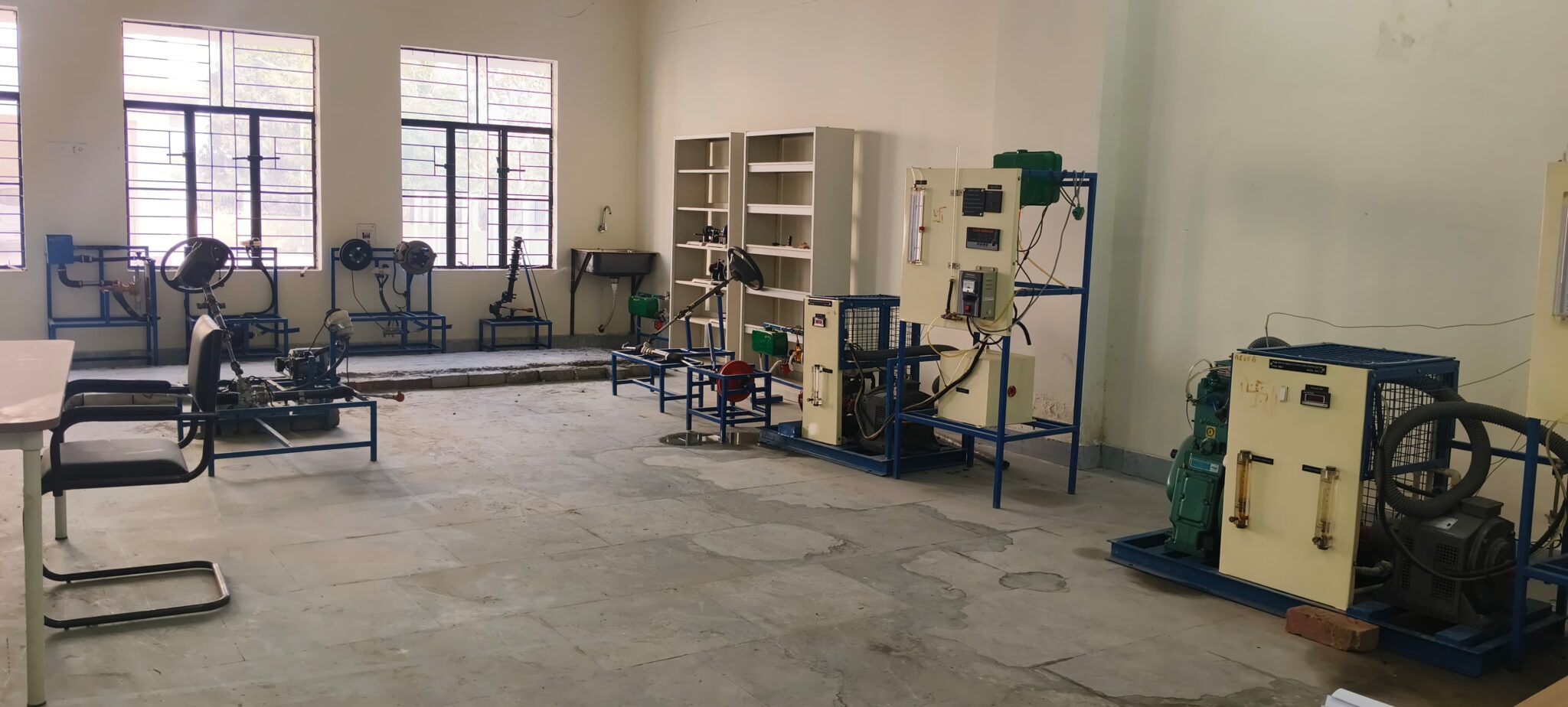Automobile Engineering/Internal Combustion Engine
Welcome to the Automobile Engineering/Internal Combustion Engine Laboratory !
Our Automobile and I.C. Engine Laboratory is a specialized facility designed to provide hands-on exposure to the working principles, construction, testing, and performance evaluation of various internal combustion engines and automotive systems. This lab bridges classroom theory with practical understanding of power generation, fuel systems, and emission control in modern vehicles.
Students gain experience in engine dismantling, assembly, testing, and analysis skills that are essential for automotive engineers, service professionals, and researchers.
Prof. In-Charge
Mr. Jyoti Kumar
Assistant Professor
Department of Mechanical Engineering
Laboratory Infrastructure
- Comprehensive Equipment
- Cut-section models of single- and multi-cylinder petrol & diesel engines
- Live demonstration units of clutch, gearbox, differential, and brake systems
- Fuel supply system models for petrol (carburetor) and diesel (fuel injection) engines
- Cooling and lubrication system rigs with operational parts
- Suspension system models (coil spring, leaf spring, MacPherson strut, independent suspension)
- Steering system setups (manual and power steering)
- Braking system models (drum, disc, hydraulic, pneumatic)
- Engine test benches for operational analysis of multi-cylinder I.C. engines.
- Hands-on Learning
- Learn constructional details and working principles of automotive components.
- Understand power transmission flow from engine to wheels.
- Study the integration of mechanical, hydraulic, and electrical systems in vehicles.
- Relate theoretical diagrams to actual physical components.
- Prototyping and Testing
- Measure brake power, indicated power, and mechanical efficiency.
- Evaluate the effect of air-fuel ratio and load on engine performance.
- Study fuel consumption patterns under variable load and speed.
- Create heat balance sheets to analyze losses and efficiencies.
-
- List of Experiments
- To study and prepare report on the constructional details, working principles and operation of the Automotive Clutches.
- To study and prepare report on the constructional details, working principles and operation of the Automotive Transmission systems.
- To study and prepare report on the constructional details, working principles and operation of the Automotive Drive Lines & Differentials.
- To study and prepare report on the constructional details, working principles and operation of the Multi-cylinder: Diesel and Petrol Engines.
- To study and prepare report on the constructional details, working principles and operation of the Fuels supply systems.
- To study and prepare report on the constructional details, working principles and operation of the Engine cooling & lubricating Systems.
- To study and prepare report on the constructional details, working principles and operation of the Automotive Suspension Systems.
- To study and prepare report on the constructional details, working principles and operation of the Automotive Steering Systems.
- To study and prepare report on the constructional details, working principles and operation of the Automotive Brake systems.


